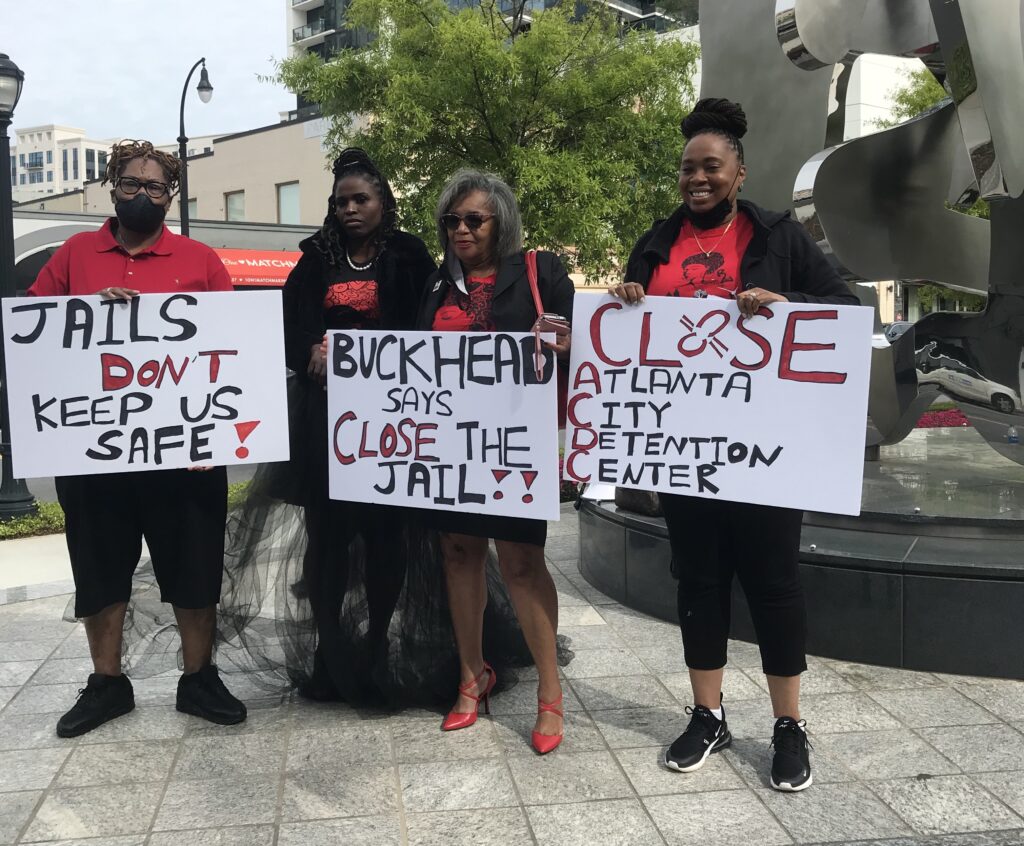We all have our own stories of transformation- stories of how we got activated to fight for racial justice and the communities that helped us along the way. Today, we’re sharing some of the story of Dahlia Ferlito, co-founder of our Los Angeles chapter, White People for Black Lives, and current SURJ National Leadership Team member.
Dahlia’s story highlights how none of us can do this work alone. We need communities to support, sustain, and educate us. We need to move as a collective- growing and taking action together to be bigger than the sum of our parts. And we need the skills to be moving more and more of our people from despair into action.
Their story also highlights how our collective inability to talk about how race divides poor and working class people in this country can lead to greater suffering. We know the Right is working hard to win over white people- it’s our work to ensure that white people know that a better future for all our communities can be achieved through solidarity.
Here’s some snippets from Dahlia’s story (full version here):
At the beginning of my journey I was righteous- I wanted to distance myself from other white people. I would list in my head all of the problematic behaviors of my past. When I saw other white people in the space of ignorance that I once occupied, I judged them, got frustrated, and severed ties.
This resulted in the loss of a childhood friend, a friend who walked me down the aisle. My friend John* was a working class white man who had a hard time holding down a job and a penchant for parties. With each passing year, his views on the world shifted from open and loving, to closed and fearful — as he looked for the next target to blame for his troubles. One day, we had a blowout argument over politics. I didn’t have the skills to carry the conversation in a thoughtful and compassionate manner, and I dropped the friendship.
I know now that he was in many ways trying to fill a void. He felt a loss of actual or potential power, opportunity, prosperity, and security. By virtue of being born a white man these seemed promised to him and he felt entitled to them. He was told that the American Dream was just at his fingertips, and the only obstacles are those other groups of people who are encroaching on his way of life and taking what is his. Underneath his rage was despair.
In my anti-racist education, this outcome is what I came to know as “the death culture of white supremacy,” the very system we thought was there to benefit us, that told us all you needed to do is lift yourself up, is the very system that is killing us.
I got to this place by shedding how I was socialized and committing to learning and growing. We do this work based on the concept of mutual interest, not guilt or shame. White folks, particularly poor and working class white people, would have much to gain by working in multiracial coalition for collective liberation.
I am proud to be part of an organization that calls on other white people to engage in critical self-reflection and examination about the meaning of race and whiteness in our lives, to recognize the power we have been socialized to hold in all spaces and to be honest and radical in our evaluation of the benefits we have been afforded.
Most importantly, I am trying to take others with me.
* name changed to protect anonymity




